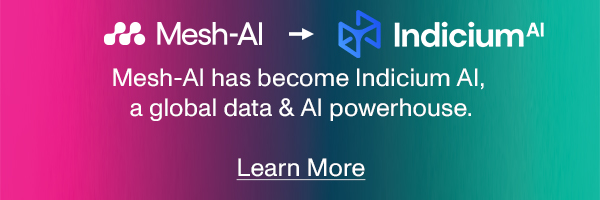


The energy industry is at a major crossroads. It sits at the heart of the global issue of climate change, with people, businesses and governments across the world calling for a rapid transition to a sustainable energy system.
Which is why we were so excited to be the only professional services partner invited to speak at AWS’s Energy Symposium to talk about how enterprises can harness data and AI to deliver innovation across the energy sector.
In this blog, I wanted to share the three most important takeaways from the event:
The energy industry must rapidly transition to sustainable energy systems to achieve Net Zero emissions in order to avoid the worst impacts of climate change.
Technologies like AI offer opportunities for the industry to optimise energy systems, improve efficiency, and reduce greenhouse gas emissions.
Firstly, by accelerating the transition to clean energy. For example, using AI to better understand, analyse and optimise energy production or to predict when assets require maintenance and optimise upkeep. They can also be used to determine the best opportunities for renewable energy by analysing weather patterns and wind speeds, for example.
Secondly, by increasing resilience in the supply chain. For example, by using data from smart meters to better understand how consumers use energy to optimise energy generation, distribution and consumption. Similarly, they can help to develop a smart grid that can intelligently meet varying demands and proactively identify and remediate potential outages.
And major energy enterprises are already exploring many of these new use cases. National Grid, for example, is trialling an AI-assisted drone reconnaissance to automate the inspection of electricity pylons.
Cadent Gas have included artificial intelligence in their digitalisation strategy, including, for example, their AI-enabled outage and impact response program.
Want to learn more? Check out our Race to Net Zero eBook
Your AI models are only as good as the data you put into them.
And, in many cases, companies are trying to run before they can walk by attempting to train models before the foundations of their data capabilities are in place: quality, accessibility, trustworthiness and so on.
Our recent research into the state of AI in the enterprise gave some key insights into this phenomenon in the energy industry: 37% of energy companies polled stated that their capacity to innovate is being held back by poor data quality. Similarly, 33% stated that data accessibility was hindering their AI innovation, specifically.
Energy companies must first get the foundation of their data pyramid in place: ensuring that data scientists have self-serve access to high-quality, trustworthy data.
For more you can read the full State of AI in the Enterprise report here.
The regulatory burden in the energy industry is only increasing as the need for a clean and sustainable energy system becomes clearer. For example, firms are being asked to deliver ever more complex reports around carbon emissions, encompassing detailed data from across the entire business.
Delivering these complex regulatory reports is incredibly labour intensive, financially costly and time-consuming. And as reporting gets more complex, this will only intensify.
Modernising your data is the key to meeting the growing regulatory burden without massive time and financial costs, simplifying governance processes and making complex reporting not only manageable but automable and repeatable.
For example, at Mesh-AI we have been working with one of the leading energy utilities in the UK to help them implement a modern, cloud-based data stack in order to deliver high-quality data products at scale across the organisation. Individual business domains now have much better access to high-quality data to accurately report on their regulatory status. This has helped them avoid millions in fines and freed up months of human hours previously spent on manual data tracking.
You can read the full case study here.
Advanced data science technologies like analytics and AI will be pivotal in optimising energy systems, driving efficiency and reducing greenhouse gas emissions.
With the right technologies in place, energy companies can reimagine how they operate while meeting environmental goals, providing an invaluable opportunity to lead the way as sustainable businesses of the future.
Interested in learning more about how Mesh-AI can help you on your transformation journey? Get in touch with us at hello@mesh-ai.com
